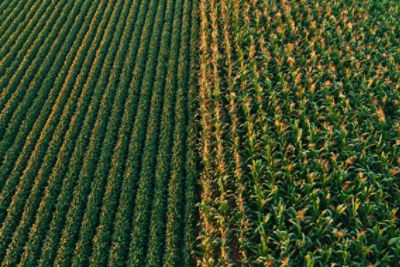The world is projected to add two billion more people in the next 25 or so years, meaning we will need to grow a lot more food on the same amount of land. But thanks to a changing climate, extreme weather and new and rising weed and pest pressures are making food harder to grow. Luckily, there is an answer: innovation.
Technology that exists today can help farmers safely produce more food, more sustainably – and help keep prices lower. Herbicides, which help fight pernicious weeds, are an important part of this equation.
Weeds can devastate crops by competing for water, nutrients, sunlight and space. Herbicides control weeds so crops like corn and wheat can grow unhindered. Without herbicides, the amount and quality of food could decrease and as a result, food prices could increase.
40%
The amount of global crop production lost annually to pests and weeds – a major constraint on global food production
89 million acres
The additional amount of land that would be needed to sustain U.S. soybean production if we didn’t have herbicides (double what’s currently used)
70%
Decline of corn, cotton, and soybean yields without pesticides
Farmers are facing two critical challenges: rapid global population growth and changing weather patterns.
Pressures from plant diseases, weeds, insects and other pests are on the rise, thanks to extreme weather, such as droughts and floods, and warmer weather year round.2
At the same time, the global population is expected to grow to 10 billion people by 2050 – an increase of 2 billion. That means that farmers must produce more food in the next three decades than has been produced in the last 8,000 years.
Crop protection products — like herbicides with 2,4-D — help farmers feed more people, more affordably, while reducing the amount of land, water and energy needed to grow food.
A recent lifecycle analysis conducted by researchers at the University of Arkansas found that cultivating corn, cotton and soybeans without pesticides, results in upwards of three times more land, water, energy use and greenhouse gas emissions.
Conventional herbicides with 2,4-D that have been thoroughly and rigorously tested, studied and regulated are a vital and irreplaceable part of the solution to feeding a growing and changing world.
